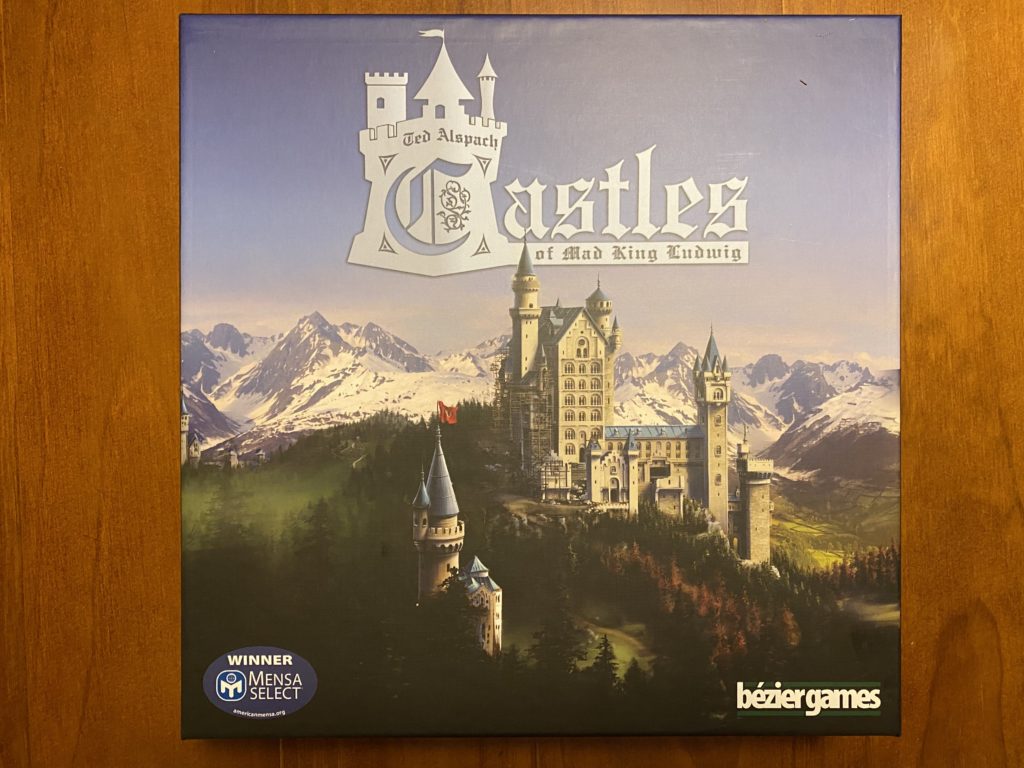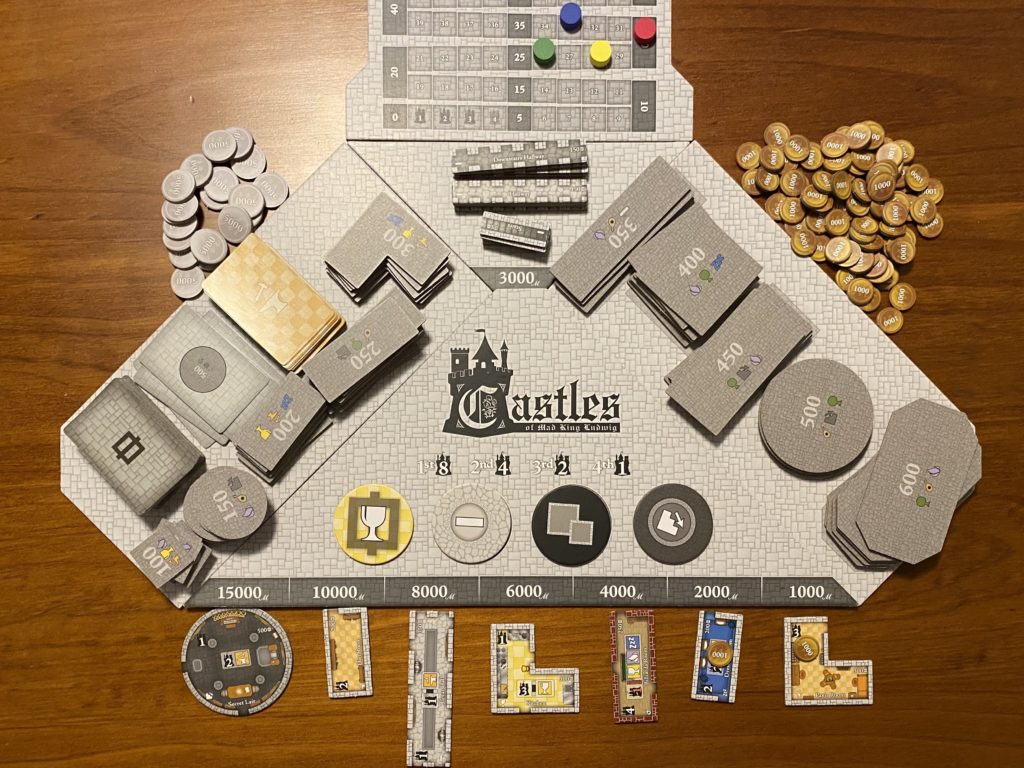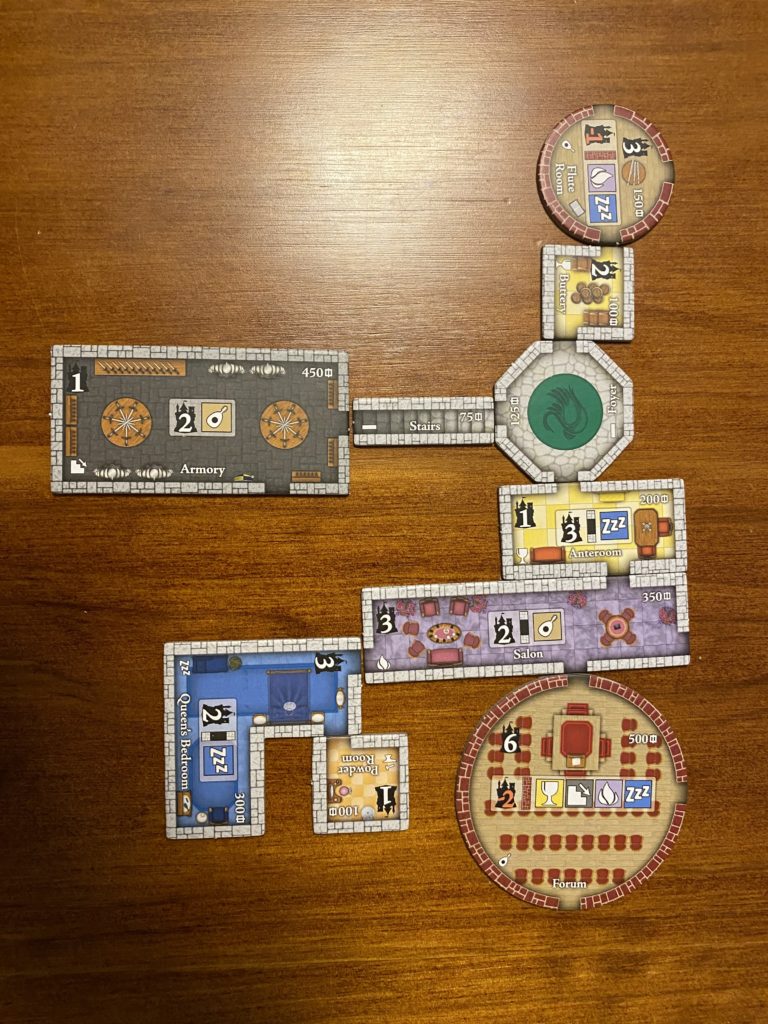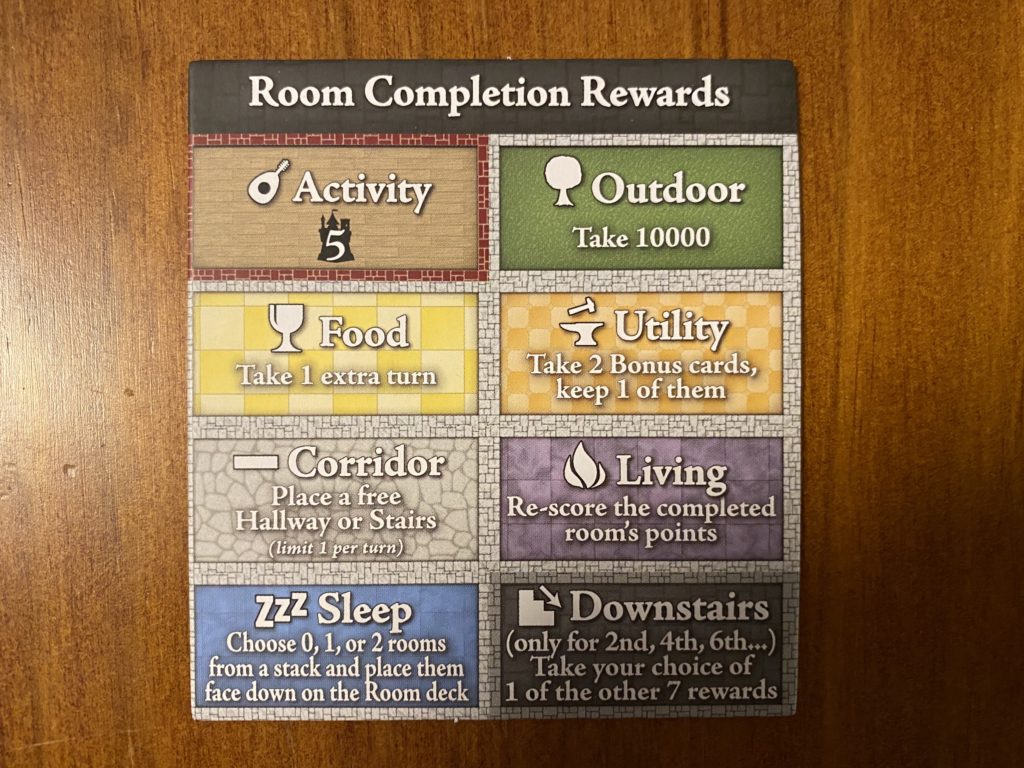In my 21 years of life I have played a fair variety of tabletop games both mass market and niche. All sorts of styles from Monopoly to Risk, Catan to secret hitler.
I have always liked games where there is at least some some need to predict and consider other players behaviour. In games like Risk there is a very direct competition against each other to conquer the world. But in games like Catan this is a less direct and is more an economic battle to victory.
Recently we decided as a family we should try some new board games as we had been just going through our 3 or 4 favourite board games cyclically. So on the recommendation from a family friend we got Castles of Mad King Ludwig a game with a lot more complicated rules than 90% of our current tabletop game collection.

So my first time playing Castles of Mad King Ludwig (Castles), was fun but that’s not what we are here to discuss.


Firstly there are a lot of very specific rules, order and structure to the way you have turns in the game but after a bit if reading it made enough sense and we got that right. But one thing we didn’t d right is the room completion bonus rewards:

These rewards are in fact as it turns out not for when you build a room (when you first acquire the room) in your castle, but in fact for when you close off every opening into a room you then receive the bonus.
In our first playthrough of Castles we took the completion reward as soon as we added a room into our castle, this made the Living, Food and every second downstairs room highly desirable and probably overpowered rooms. Unbalancing the game cause myself to have over twice the victory points of the other two players. While i did very much enjoy the game it was clear we had done something wrong. This was as a eurogame does not rely as much on the luck of the cards drawn as this game had.
This imbalance clearly highlighted the importance and difficulty of balancing eurogames to be satisfying, winnable and not relying on luck to win. Another play through demonstrated the intend balance of the game and lead to a much closer competition.
In the new playthrough the master builder (person who chooses the price of the rooms, it rotates like a dealer in poker) had a much more impactful role. The master builders ability actually impacted the round if played well no matter what room cards were randomly added to the rotation.
This experience showed me the importance of user interface design for board games as misunderstanding of a single mechanic drastically changed how the game plays. On reflection maybe it was clear but for one reason or another it wasn’t clear enough in the game design for us and that is a problem.

